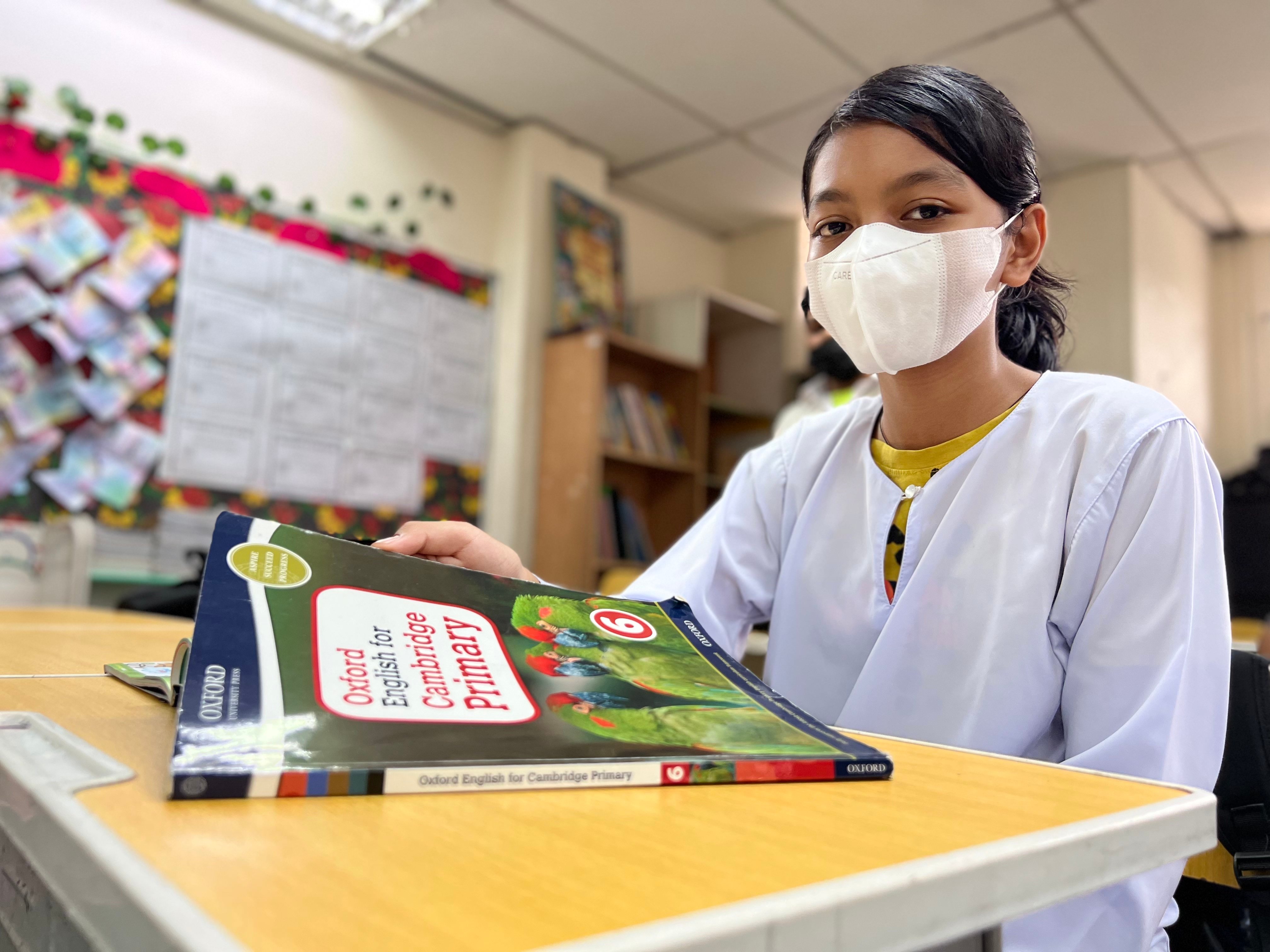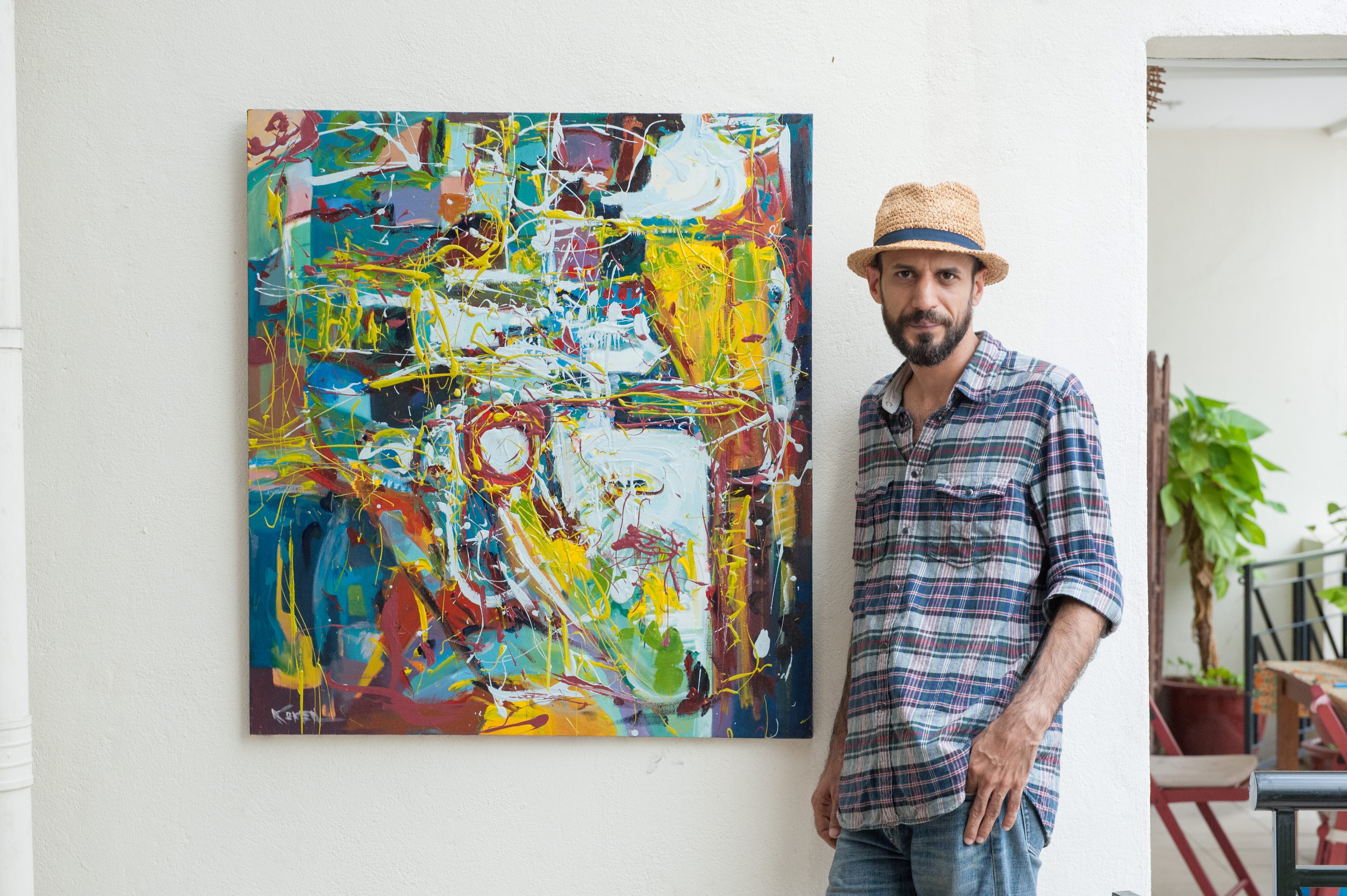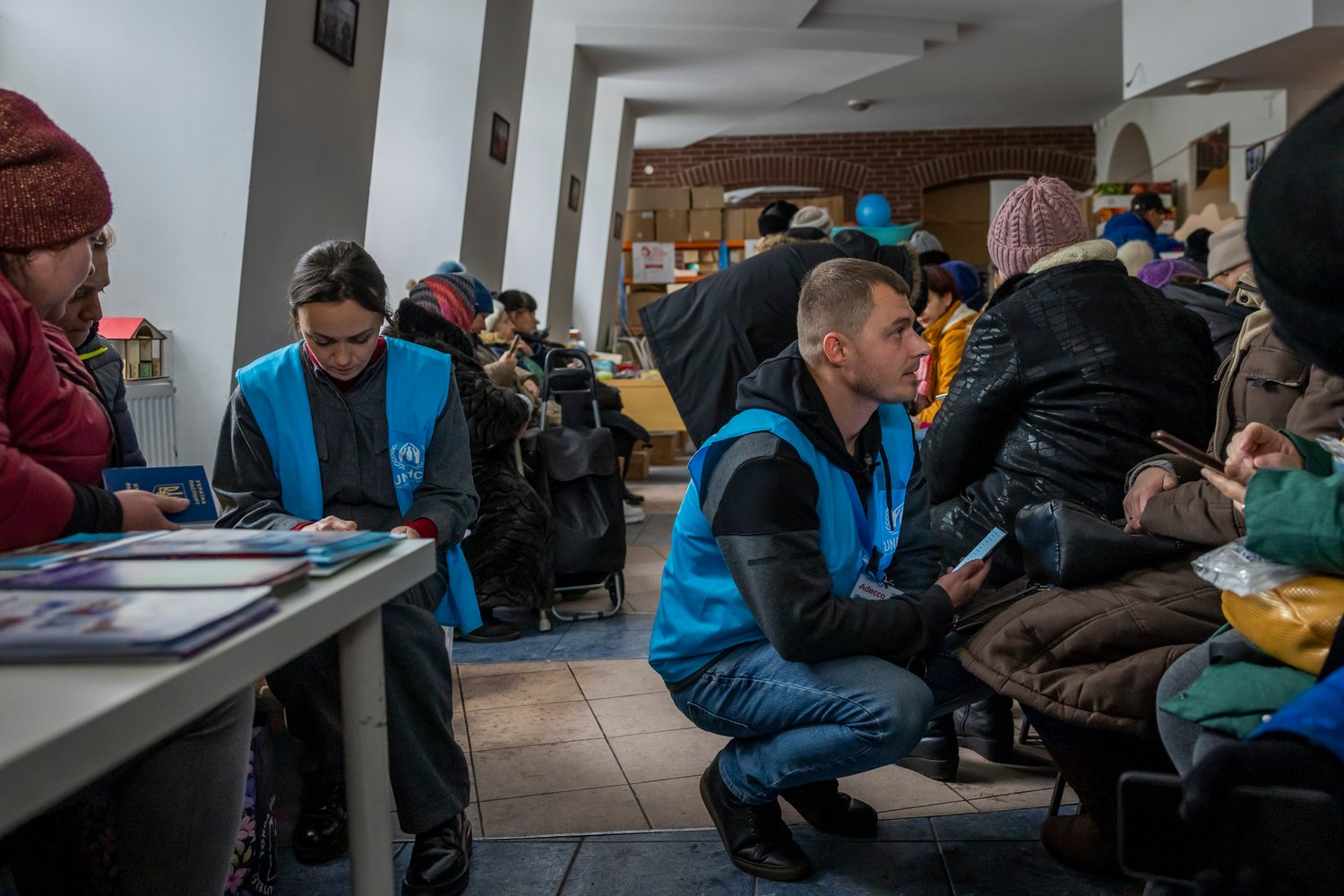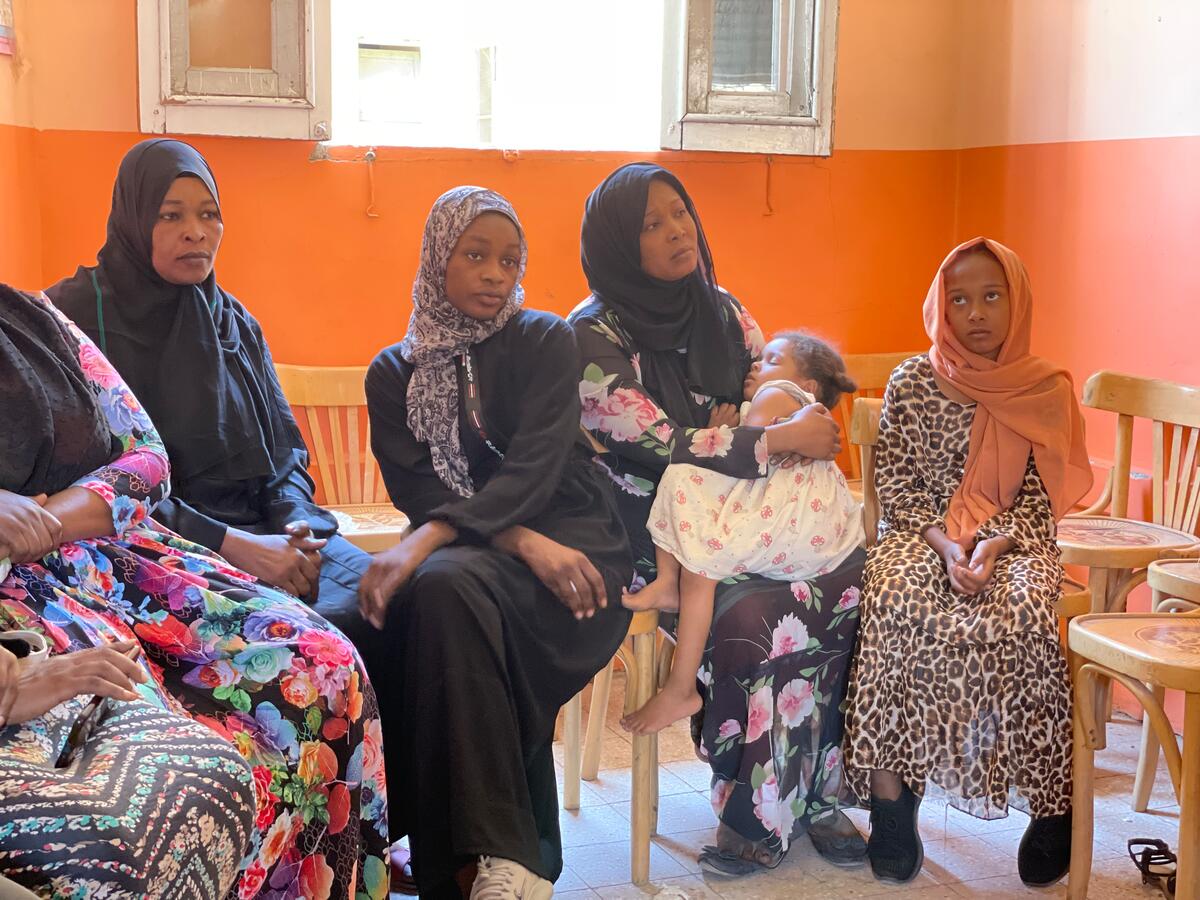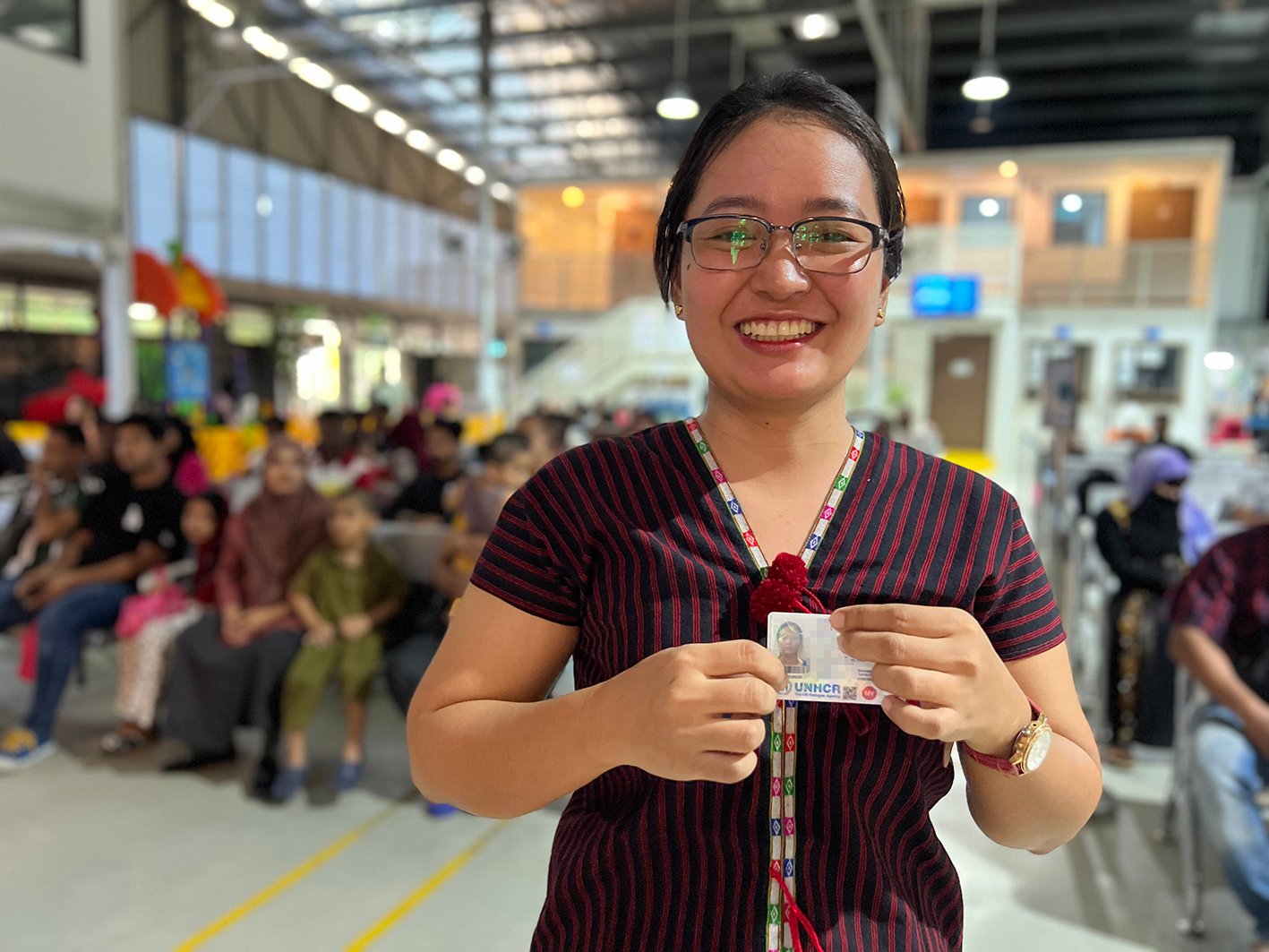“Our work is crucial in keeping refugees safe, and ensuring that their access to justice is preserved.”
“Our work is crucial in keeping refugees safe, and ensuring that their access to justice is preserved.”
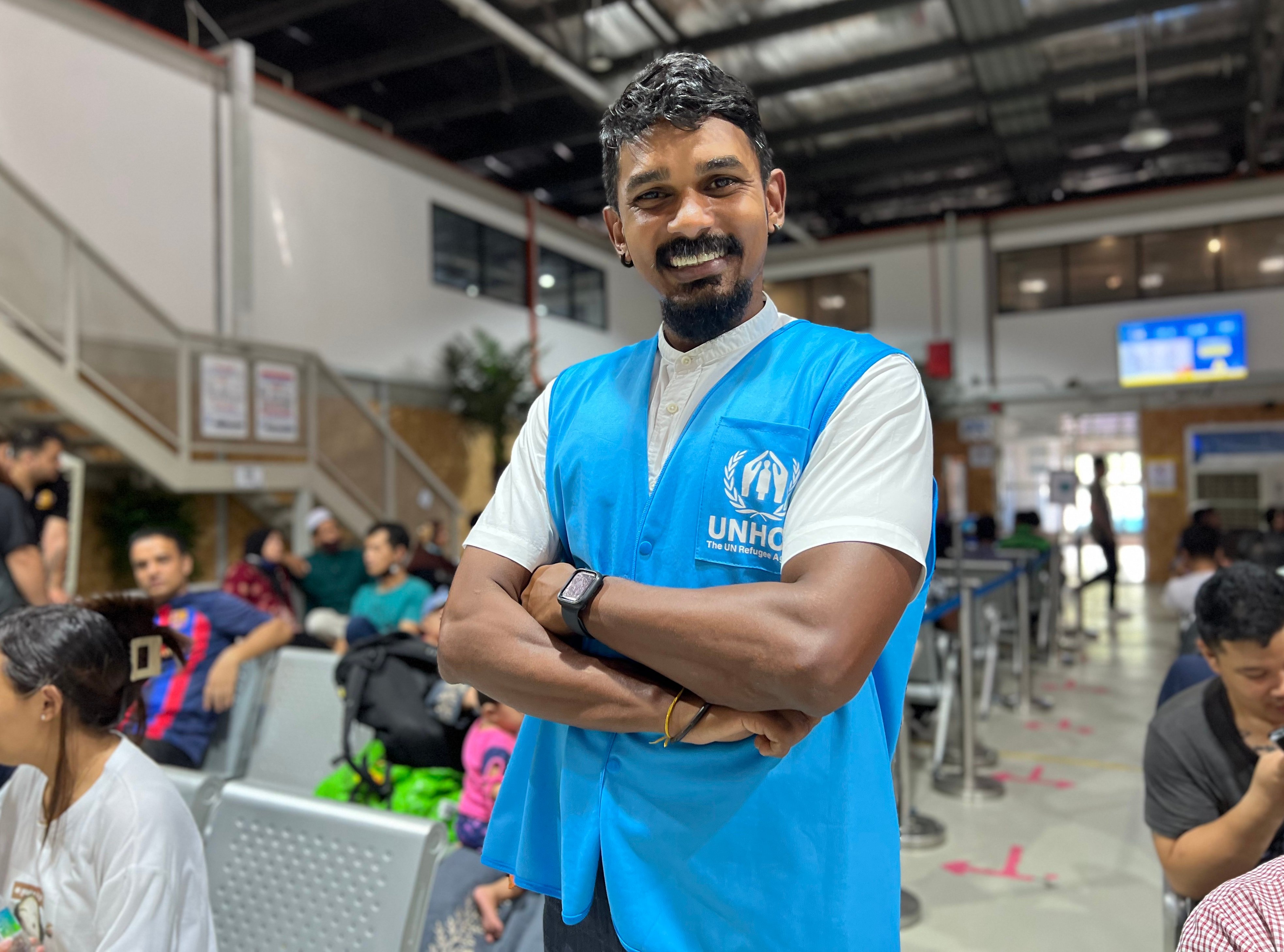
Devendiran Paramanantham at the UNHCR Malaysia Refugee Centre
What is your name and designation.
My name is Devendiran Paramanantham, and I head the Legal Protection Unit in UNHCR Malaysia.
Can you describe the work of the Legal Protection Unit?
In brief, my team works to ensure the physical protection of refugees and asylum-seekers – in particular in mitigating the detention of refugees and asylum-seekers for immigration offences - while advocating for better access to justice and access to asylum .
Let me give you some specific examples of what this means.
On a day to day basis, our work will include intervening with the authorities when refugees and asylum-seekers are detained for immigration offences, including working with partners to provide legal representation and assistance so that refugees and asylum-seekers– especially highly vulnerable individuals like children – are not wrongfully charged for immigration offences and not detained.
When we are informed that refugees or asylum-seekers have been arrested or detained for immigration offences, the team will advocate for their release. When we are given access by the authorities, this work includes travelling across Malaysia to detention centres where refugees and asylum-seekers are detained. Our intervention also includes advocating for search and rescue, access to territory, and the safe disembarkation of boats carrying asylum-seekers who may be in need of protection – especially when they are facing distress at sea.
Some of the team members are responsible for liaising with law enforcement authorities who contact us to verify the authenticity of UNHCR’s documentation. In fact, my team also runs the UNHCR Detention Hotline to make it easier for authorities to call and verify refugees’ documents, and for refugees, NGOs, and others to report when refugees have been detained for immigration offences. Continuous advocacy to ensure that the Government and law enforcement agencies recognise the documentation that UNHCR issues to refugees is a key priority for the team.
Thus, we focus a great deal of attention on training and awareness-raising sessions with law enforcement agencies to enhance their understanding of refugee protection – including understanding the features of refugee documentation and how to verify their authenticity.
When there are complex protection cases, our job also includes conducting protection assessments to ascertain what interventions are required. For instance, with cases of refugees who are survivors of trafficking, my team will need to work with authorities and partners to provide these refugees with the necessary protection under the relevant national Acts and/or legal instruments.
All of this work would not be possible without close engagement with law enforcement agencies – including the police and immigration authorities – as well as the legal fraternity, such as magistrates and judges, and also the Bar Council and the Legal Aid Centres, and others working in the area of legal protection. We engage in advocacy and dialogue with these stakeholders to address legal and protection matters relating to the prevention of, and response to the detention of refugees and asylum-seekers, as well as the overall safety of refugees while they are in the country.
Why is the work of the Legal Protection Unit especially important in a country like Malaysia where there is no legal framework to manage refugees?
The absence of a legal framework for refugees in Malaysia basically means that they do not have legal status to remain in this country. By law, refugees are considered as undocumented migrants, and as a result, do not enjoy freedom of movement because they are at risk of arrest, detention, and forcible deportation to a country where their lives or freedom may be at risk. They also cannot work legally – and face the risk of arrest for working without proper documentation.
With no laws in place that define refugees as people needing international protection or that define the rights of refugees, they face dire challenges in every aspect of their lives in the country. For instance, refugees are unable to access legal work, formal education, or affordable healthcare. In light of this difficult protection environment, the work of the Legal Protection Unit is crucial in keeping refugees safe, in preventing their arrest, detention, or deportation and ensuring that their access to asylum and justice is preserved. It is not an exaggeration to say that often our interventions affect refugees’ life and liberty in fundamental ways, which is why our interventions need to be timely and strategic, and in close cooperation with key stakeholders where impact can be made – especially with law enforcement authorities.
As you have emphasised, advocacy with law enforcement authorities is crucial, especially in a country like Malaysia with its complex protection environment for refugees. Can you describe some of the work that LPU does to improve advocacy with authorities and the judiciary in Malaysia?
I’ll start with one pressing protection issue as an example – and that is access to immigration detention centres. UNHCR has not received approval from Immigration authorities to access immigration detention centres since August 2019. This has unfortunately prevented UNHCR from seeing those detained to determine if there are individuals in need of international protection and to advocate for their release.
In light of this, our advocacy focus with the Immigration Department and relevant Government agencies and Ministries, including at the highest level, has been for immediate access to those who may be in need of our protection, and more broadly on all matters regarding the arrest, detention and deportation of refugees and asylum-seekers. Advocating for alternatives to detention has also been a key priority in our work, especially since accessing asylum is not a crime.
Beyond that issue, we believe it is important to continue improving cooperation by conducting frequent engagements with law enforcement agencies, Governmental stakeholders, and the judiciary through courtesy visits or dialogues on various issues of mutual concern.
This includes also strengthening our efforts with other stakeholders. For example, we collaborate with the National Human Rights Commission (SUHAKAM) on a variety of activities to sensitise authorities on refugee issues and broadly enhance the refugee protection environment, including joint monitoring activities in various parts of the country.
Advocacy and engagement initiatives are also conducted through various workshops and lectures with a wide array of stakeholders - including members of the Judiciary, members of the Attorney-General’s Chambers, the Malaysian Bar Council, state legal aid centres, and academic institutions.
One promising development has been our work with the judiciary. In addition to regular lectures, UNHCR has twice held a Judicial Engagement Workshop for Sessions Court Judges and Magistrate nationwide that preside on immigration related matters, in 2019 and again 2023. It proved to be a useful tool in enabling judges to build capacity on matters concerning refugees while exploring various case laws that affect refugees and creating a platform to share best-practices amongst peers. Through this workshop, LPU will develop various materials and guidance notes together with the Judiciary to better equip members of the bench when dealing with a matter concerning refugees. We are positive that this will create a pathway for better access to justice for refugees in Malaysia.
Further to these advocacy efforts, LPU has worked closely with prominent lawyers from the Malaysian Bar Council in undertaking strategic litigation efforts to bring about good law that would improve the safety and security of refugees and asylum-seekers. This includes case laws involving children who have been charged for immigration related offences and have been placed in detention indefinitely. In some of these precedents, the Courts granted bail (as a form of alternatives to detention), indicated that whipping is not a mandatory punishment and that children should not be placed in detention. These case laws have been used in LPU’s advocacy with the Judiciary, Attorney-General’s Chambers and the legal fraternity, when pushing the envelope on alternatives to detention, combating arbitrary detention and ensuring the rights of refugees are protected.
Can you talk further on an interesting initiative UNHCR started with the Malaysian Bar Council to help strengthen refugees’ legal awareness?
For a few years now, UNHCR together with the Malaysian Bar Council has held the Refugee and Asylum-seeker Legal Aid Scheme (RALAS). This initiative provides refugees and asylum-seekers legal awareness on their rights in Malaysia.
The RALAS session is designed to not only provide information on their rights but to also obtain free legal advice on a one-to-one basis. Lawyers from various state legal aid centres schedule visits to refugee communities to speak on several areas of law including criminal and immigration law, family law, employment law, civil law, and Syariah law. These sessions also allow for one-on-one consultations for those requiring specific legal advice.
We have successfully collaborated with the Malaysian Bar Council, State Legal Aid Centres from KL, Penang and Kelantan. Over 3000 individuals from various refugee communities have benefitted from this programme since 2018. We hope to see it continue with more programmes in other states, like Johor.
UNHCR greatly appreciates the contributions of donors, including the European Union for its continued support under the European Civil Protection and Humanitarian Aid Operations (ECHO) funding, that helps UNHCR carry out crucial protection interventions such as the work done by the Legal Protection Unit at UNHCR Malaysia.


